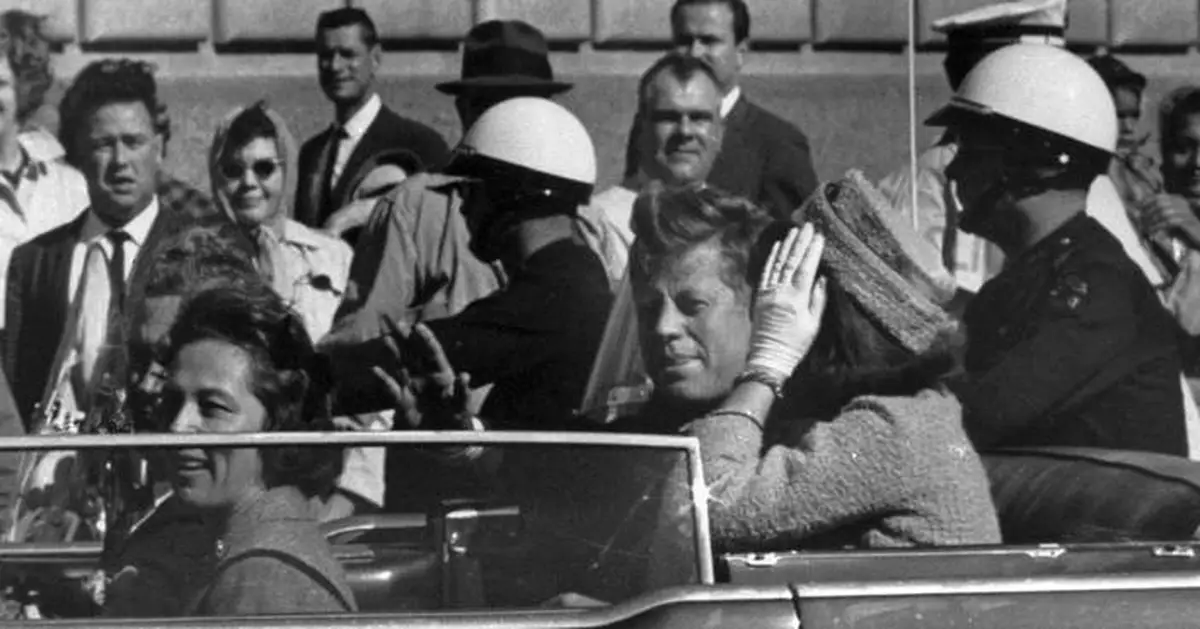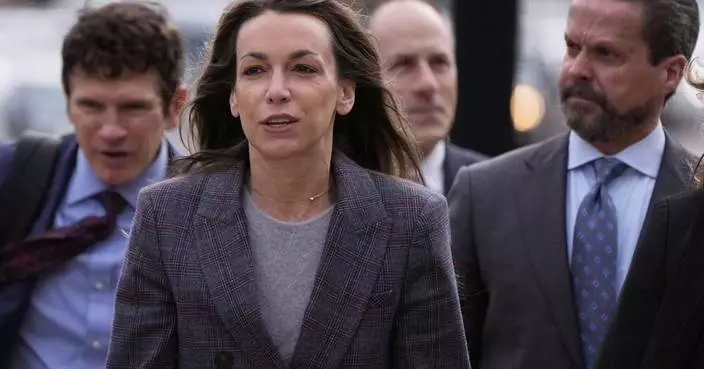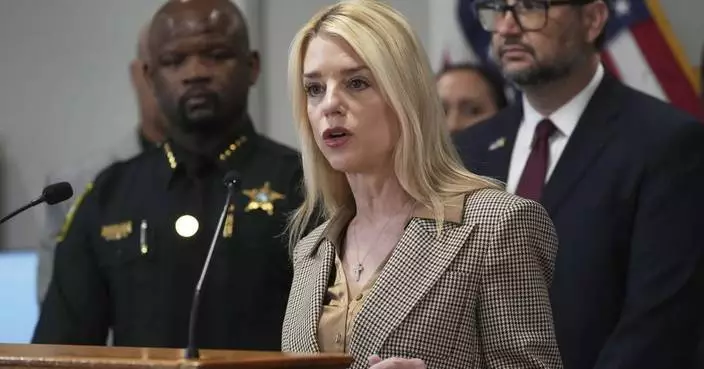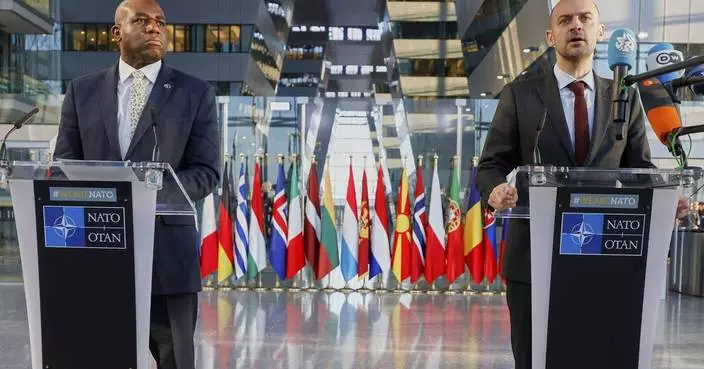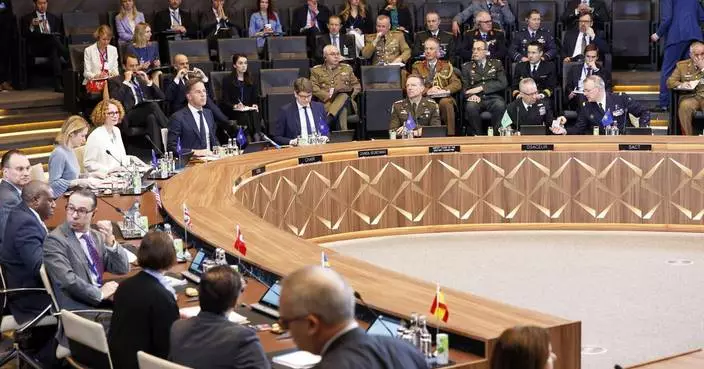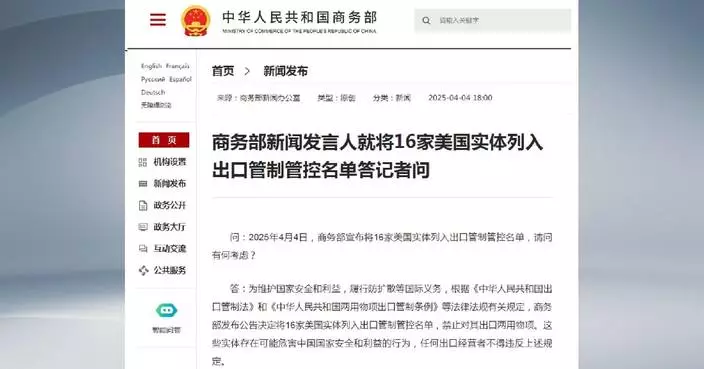Oscar-winning director Oliver Stone, whose 1991 film “JFK” portrayed President John F. Kennedy's assassination as the work of a shadowy government conspiracy, called Tuesday for a new congressional investigation of the killing during a hearing that aired conspiracy theories about it.
The freewheeling hearing of the House Task Force on the Declassification of Federal Secrets, where partisan grievances were aired, followed last month's release of thousands of pages of government documents related to the assassination. The task force's Republican chair opened the proceedings by questioning the Warren Commission investigation's conclusion that Lee Harvey Oswald acted alone in fatally shooting Kennedy as his motorcade finished a parade route in downtown Dallas on Nov. 22, 1963.
Click to Gallery
FILE - Secret servicemen standing on running boards follow the presidential limousine carrying President John F. Kennedy, right, rear seat, and first lady Jacqueline Kennedy, left, as well as Texas Gov. John Connally and his wife, Nellie, in Dallas, Texas, Nov. 22, 1963. (AP Photo/Jim Altgens, File)
Director Oliver Stone, center, author Jefferson Morley, left, and researcher James DiEugenio stand to be sworn in during a hearing of the House Task Force on the Declassification of Federal Secrets on Capitol Hill, Tuesday, April 1, 2025, in Washington. (AP Photo/Mark Schiefelbein)
Director Oliver Stone, center, arrives before a hearing of the House Task Force on the Declassification of Federal Secrets on Capitol Hill, Tuesday, April 1, 2025, in Washington. (AP Photo/Mark Schiefelbein)
Director Oliver Stone listens during a hearing of the House Task Force on the Declassification of Federal Secrets on Capitol Hill, Tuesday, April 1, 2025, in Washington. (AP Photo/Mark Schiefelbein)
Researcher James DiEugenio speaks during a hearing of the House Task Force on the Declassification of Federal Secrets on Capitol Hill, Tuesday, April 1, 2025, in Washington. (AP Photo/Mark Schiefelbein)
Author Jefferson Morley speaks during a hearing of the House Task Force on the Declassification of Federal Secrets on Capitol Hill, Tuesday, April 1, 2025, in Washington. (AP Photo/Mark Schiefelbein)
Director Oliver Stone, right, talks with author Jefferson Morley before a hearing of the House Task Force on the Declassification of Federal Secrets on Capitol Hill, Tuesday, April 1, 2025, in Washington. (AP Photo/Mark Schiefelbein)
Director Oliver Stone listens during a hearing of the House Task Force on the Declassification of Federal Secrets on Capitol Hill, Tuesday, April 1, 2025, in Washington. (AP Photo/Mark Schiefelbein)
Rep. Anna Paulina Luna, R-Fla., speaks during a hearing of the House Task Force on the Declassification of Federal Secrets on Capitol Hill, Tuesday, April 1, 2025, in Washington. (AP Photo/Mark Schiefelbein)
Director Oliver Stone listens during a hearing of the House Task Force on the Declassification of Federal Secrets on Capitol Hill, Tuesday, April 1, 2025, in Washington. (AP Photo/Mark Schiefelbein)
Director Oliver Stone stands to be sworn in during a hearing of the House Task Force on the Declassification of Federal Secrets on Capitol Hill, Tuesday, April 1, 2025, in Washington. (AP Photo/Mark Schiefelbein)
FILE - Secret servicemen standing on running boards follow the presidential limousine carrying President John F. Kennedy, right, rear seat, and first lady Jacqueline Kennedy, left, as well as Texas Gov. John Connally and his wife, Nellie, in Dallas, Texas, Nov. 22, 1963. (AP Photo/Jim Altgens, File)
FILE - In this Nov. 22, 1963 file photo, the limousine carrying mortally wounded President John F. Kennedy races toward the hospital seconds after he was shot in Dallas. (AP Photo/Justin Newman, File)
FILE - This Nov. 22, 1963 file photo shows President John F. Kennedy riding in motorcade with first lady Jacqueline Kenndy in Dallas, Texas. (AP Photo, file)
Scholars say the files that President Donald Trump ordered to be released showed nothing undercutting the conclusion that a lone gunman killed Kennedy. Many documents were previously released but contained newly removed redactions, including Social Security numbers, angering people whose personal information was disclosed.
Stone’s “JFK” was nominated for eight Oscars, including best picture, and won two. It grossed more than $200 million but was also dogged by questions about its historical accuracy. Stone told the committee that he believes decades of delays in releasing unredacted records had prevented “clarity” about who killed JFK.
Stone also said a new investigation “outside all political considerations” should begin “at the scene of the crime” and reexamine all of the evidence from the day of the assassination. Scholars and historians have concluded that there's strong evidence that Oswald, a 24-year-old former Marine, acted alone in killing Kennedy.
“Can we return to a world where we can trust our government to level with us, the people for which this government exists?” Stone said. "This is our democracy. This is our presidency. It belongs to us."
The task force's chair, Rep. Anna Paulina Luna of Florida, said she thinks the federal government under previous administrations had engaged in “stonewalling.”
The task force also heard from a witness called by Democrats who criticized the Trump administration's handling of the recent JFK document release. John Davisson, senior counsel for the Washington-based Electronic Privacy Information Center, called it “hurried” and suggested that the National Archives and Records Administration “simply ignored” procedures for protecting people’s privacy.
The task force’s Democrats followed up on his comments by criticizing the Trump administration over a variety of other issues.
“What I find funny about this hearing is that the Republicans are here relitigating whether CIA agents lied 60 years ago," said Rep. Jasmine Crockett, whose Texas district includes part of Dallas.
Crockett suggested that Congress should instead delve deeper into revelations that top national security officials discussed sensitive attack plans over a messaging app and mistakenly added a journalist to the group chat.
The last formal congressional investigation of Kennedy's assassination took three years and ended in 1978, when a House committee issued a report concluding that the Soviet Union, Cuba, organized crime, the CIA and the FBI weren't involved, but Kennedy “probably was assassinated as a result of a conspiracy.” In 1976, a Senate committee said it had not uncovered enough evidence “to justify a conclusion that there was a conspiracy.”
The Warren Commission, appointed by Kennedy's successor, President Lyndon B. Johnson, concluded that Oswald fired on Kennedy's motorcade from a sniper's perch on the sixth floor of the Texas School Book Depository, where Oswald worked. Police arrested Oswald within 90 minutes, and two days later, Jack Ruby, a nightclub owner, shot Oswald during a jail transfer broadcast on live television.
For Tuesday's hearing, the task force also invited Jefferson Morley and James DiEugenio, who have written books arguing for conspiracies behind the assassination. Morley is editor of the JFK Facts blog and vice president of the Mary Ferrell Foundation, a repository for files related to the assassination.
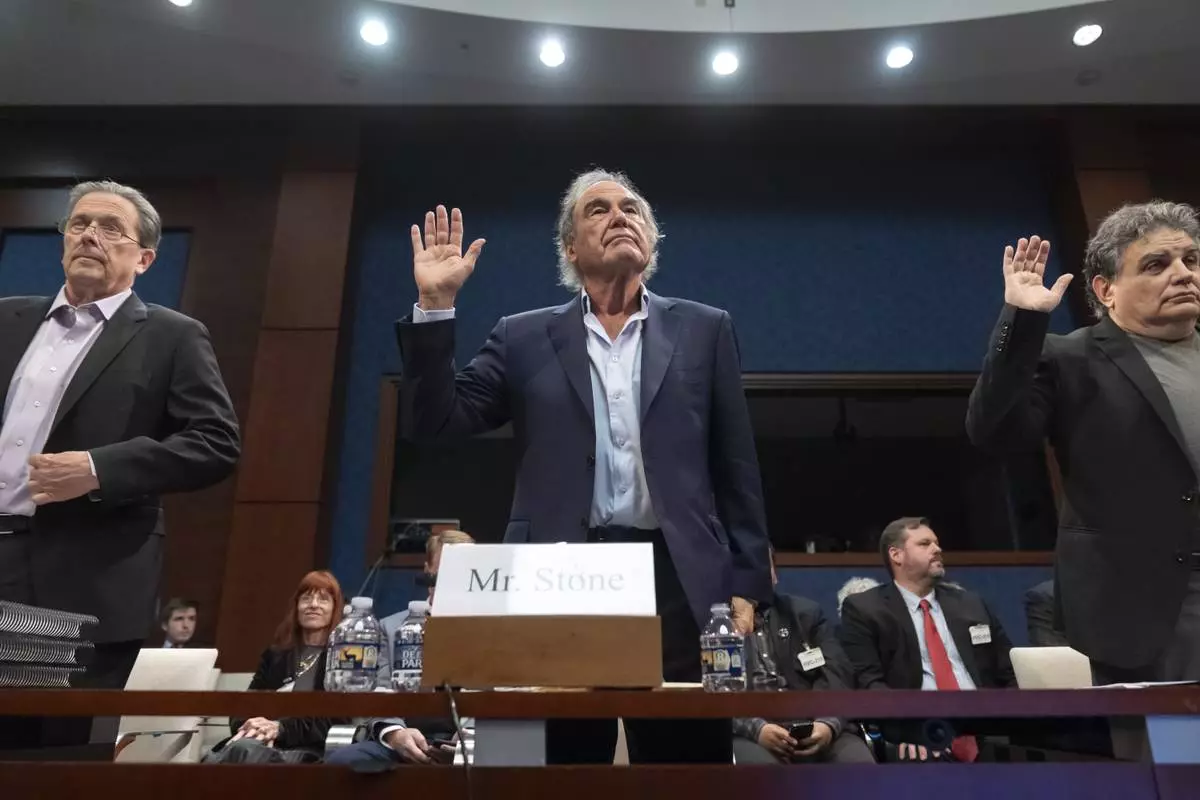
Director Oliver Stone, center, author Jefferson Morley, left, and researcher James DiEugenio stand to be sworn in during a hearing of the House Task Force on the Declassification of Federal Secrets on Capitol Hill, Tuesday, April 1, 2025, in Washington. (AP Photo/Mark Schiefelbein)
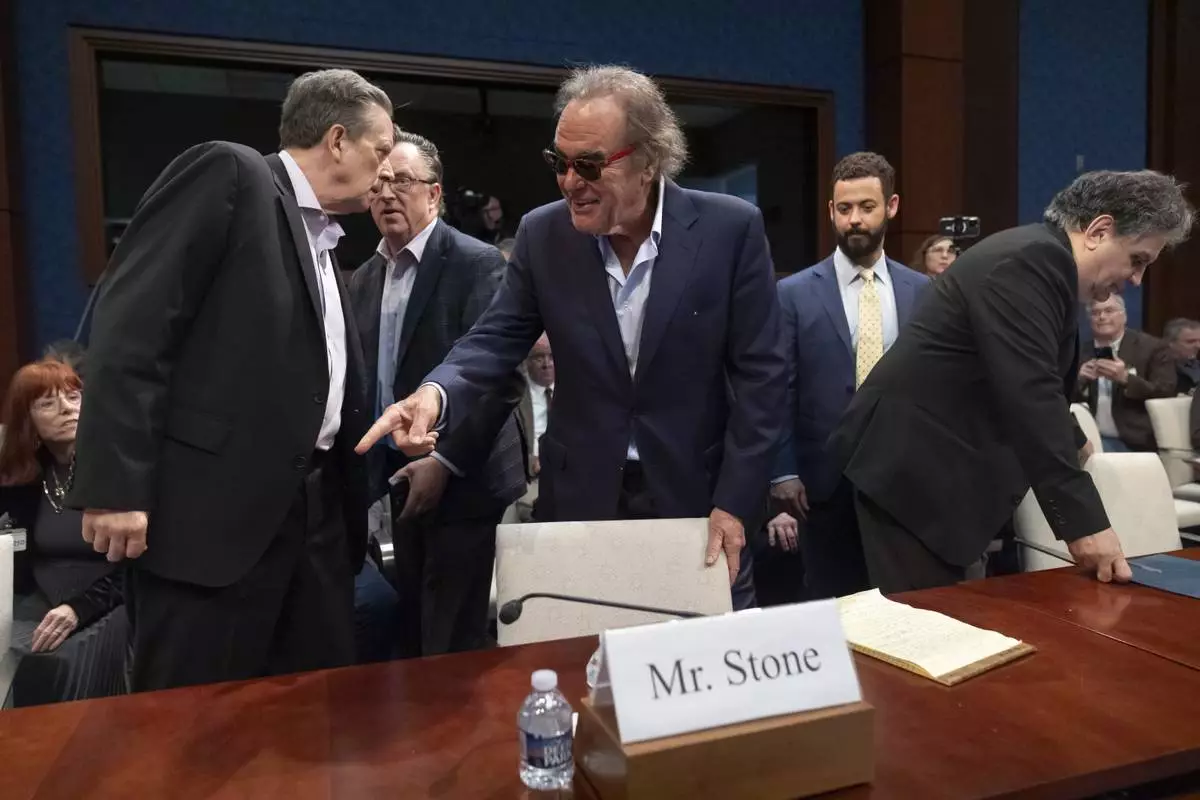
Director Oliver Stone, center, arrives before a hearing of the House Task Force on the Declassification of Federal Secrets on Capitol Hill, Tuesday, April 1, 2025, in Washington. (AP Photo/Mark Schiefelbein)
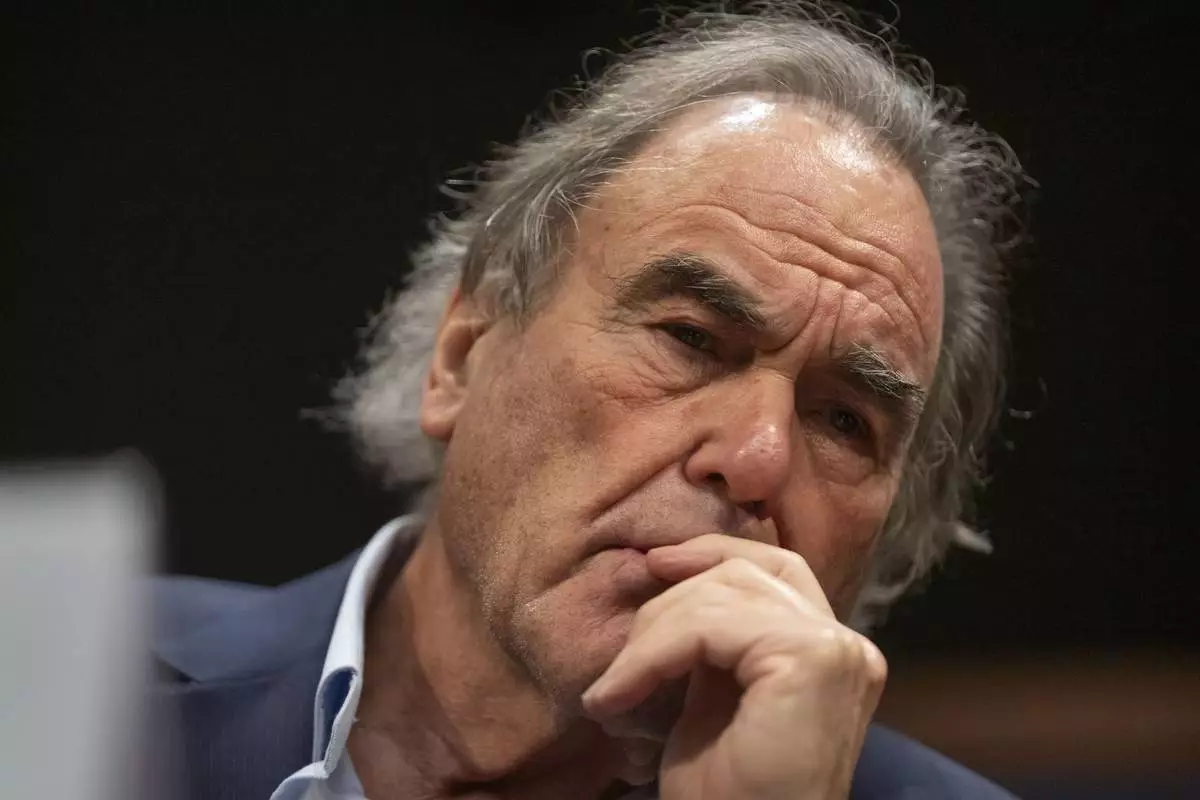
Director Oliver Stone listens during a hearing of the House Task Force on the Declassification of Federal Secrets on Capitol Hill, Tuesday, April 1, 2025, in Washington. (AP Photo/Mark Schiefelbein)
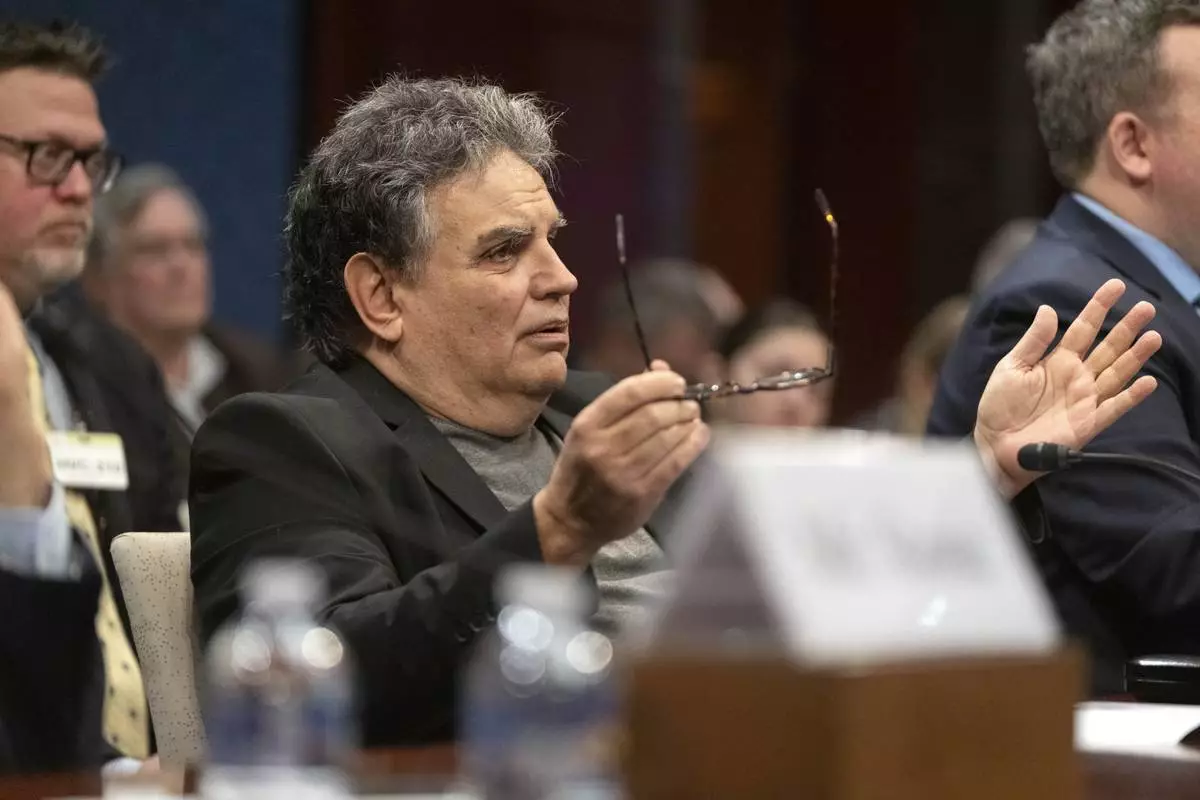
Researcher James DiEugenio speaks during a hearing of the House Task Force on the Declassification of Federal Secrets on Capitol Hill, Tuesday, April 1, 2025, in Washington. (AP Photo/Mark Schiefelbein)
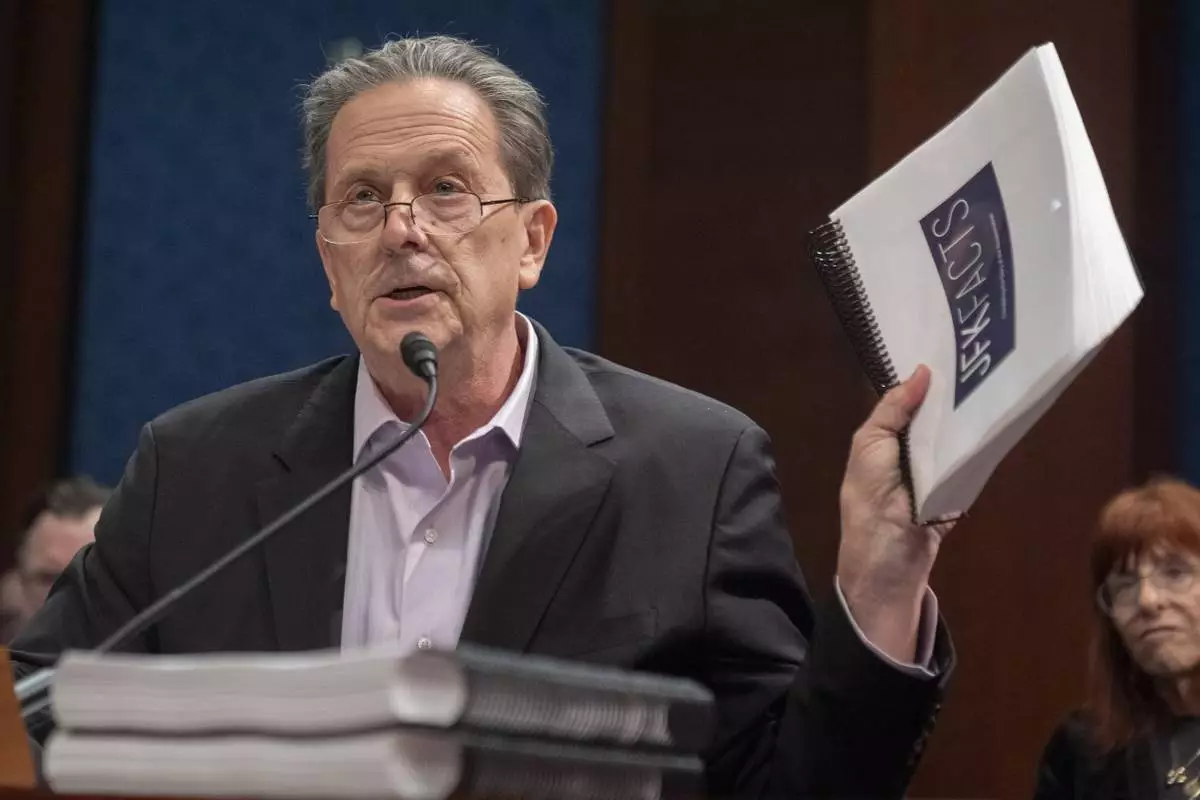
Author Jefferson Morley speaks during a hearing of the House Task Force on the Declassification of Federal Secrets on Capitol Hill, Tuesday, April 1, 2025, in Washington. (AP Photo/Mark Schiefelbein)
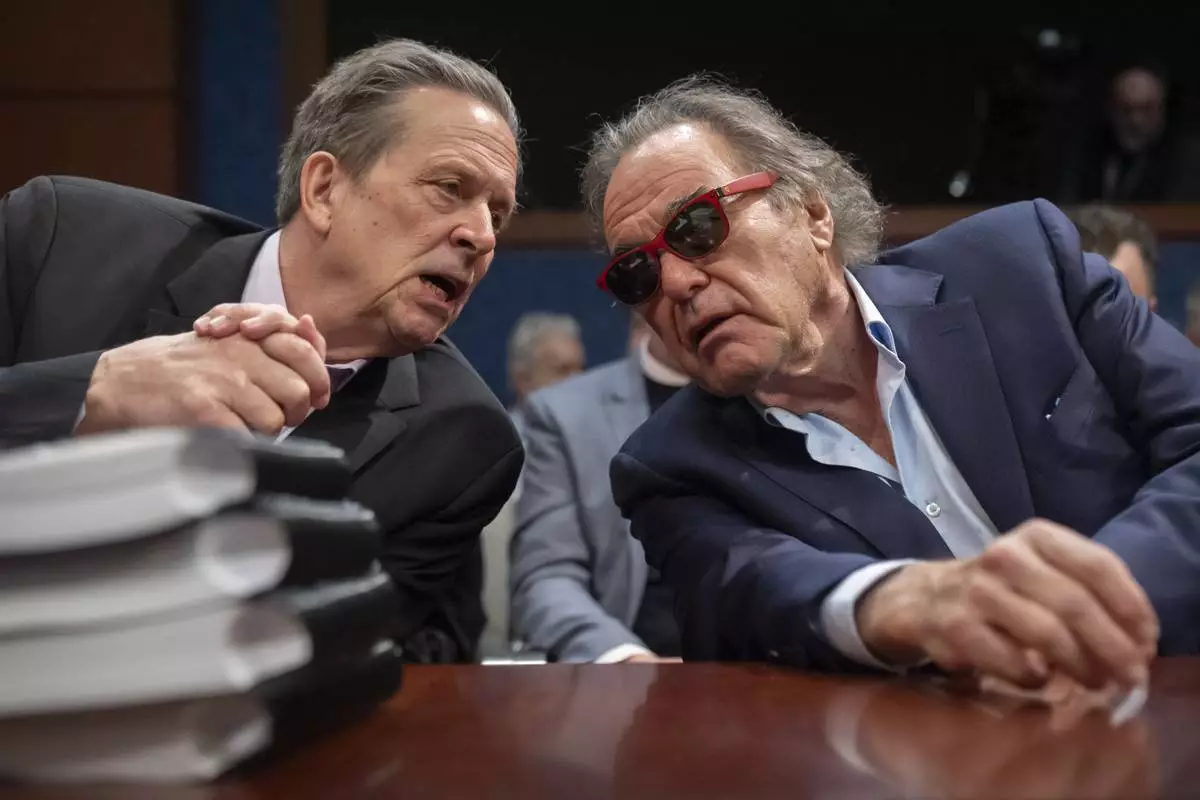
Director Oliver Stone, right, talks with author Jefferson Morley before a hearing of the House Task Force on the Declassification of Federal Secrets on Capitol Hill, Tuesday, April 1, 2025, in Washington. (AP Photo/Mark Schiefelbein)
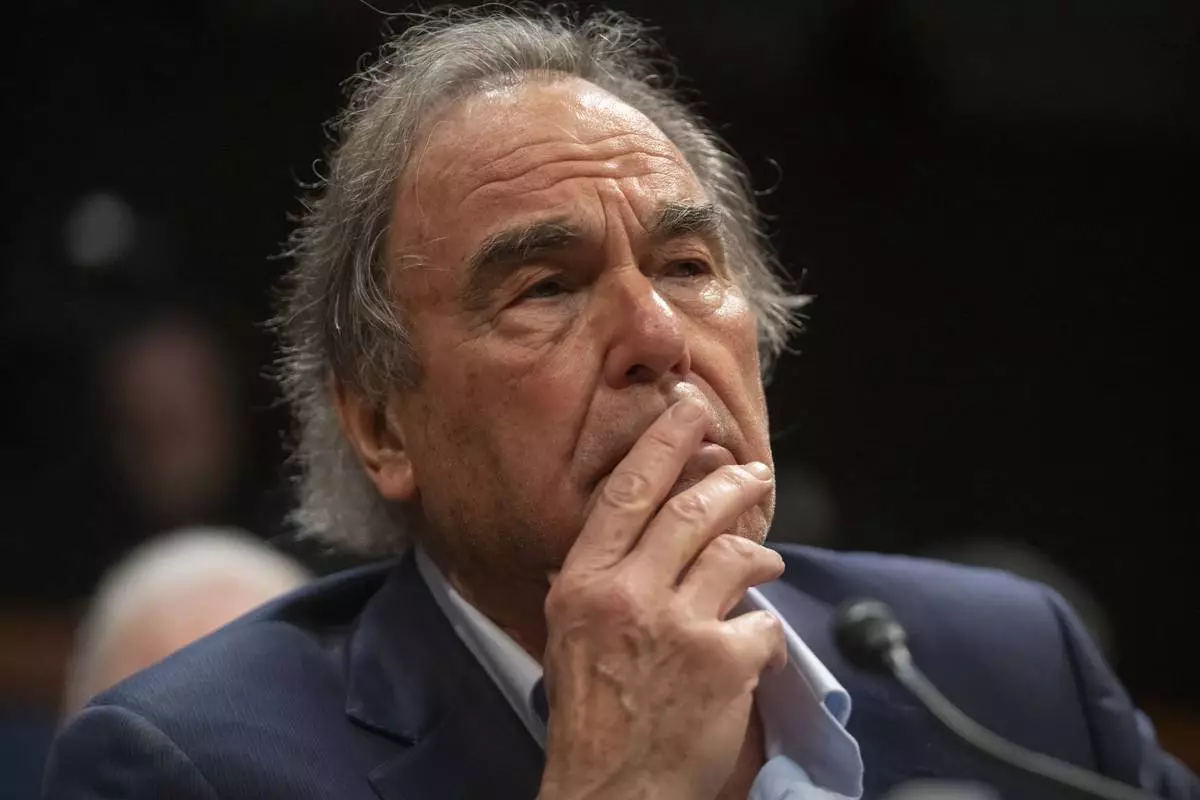
Director Oliver Stone listens during a hearing of the House Task Force on the Declassification of Federal Secrets on Capitol Hill, Tuesday, April 1, 2025, in Washington. (AP Photo/Mark Schiefelbein)
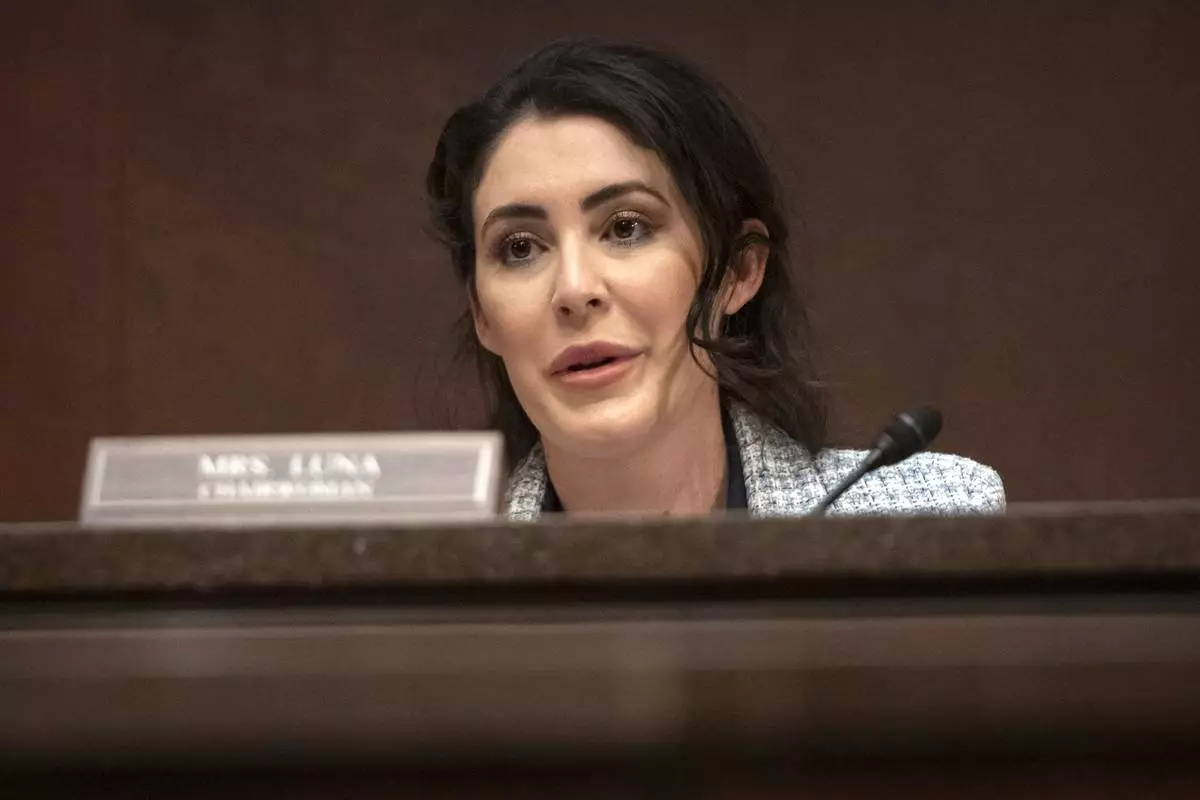
Rep. Anna Paulina Luna, R-Fla., speaks during a hearing of the House Task Force on the Declassification of Federal Secrets on Capitol Hill, Tuesday, April 1, 2025, in Washington. (AP Photo/Mark Schiefelbein)
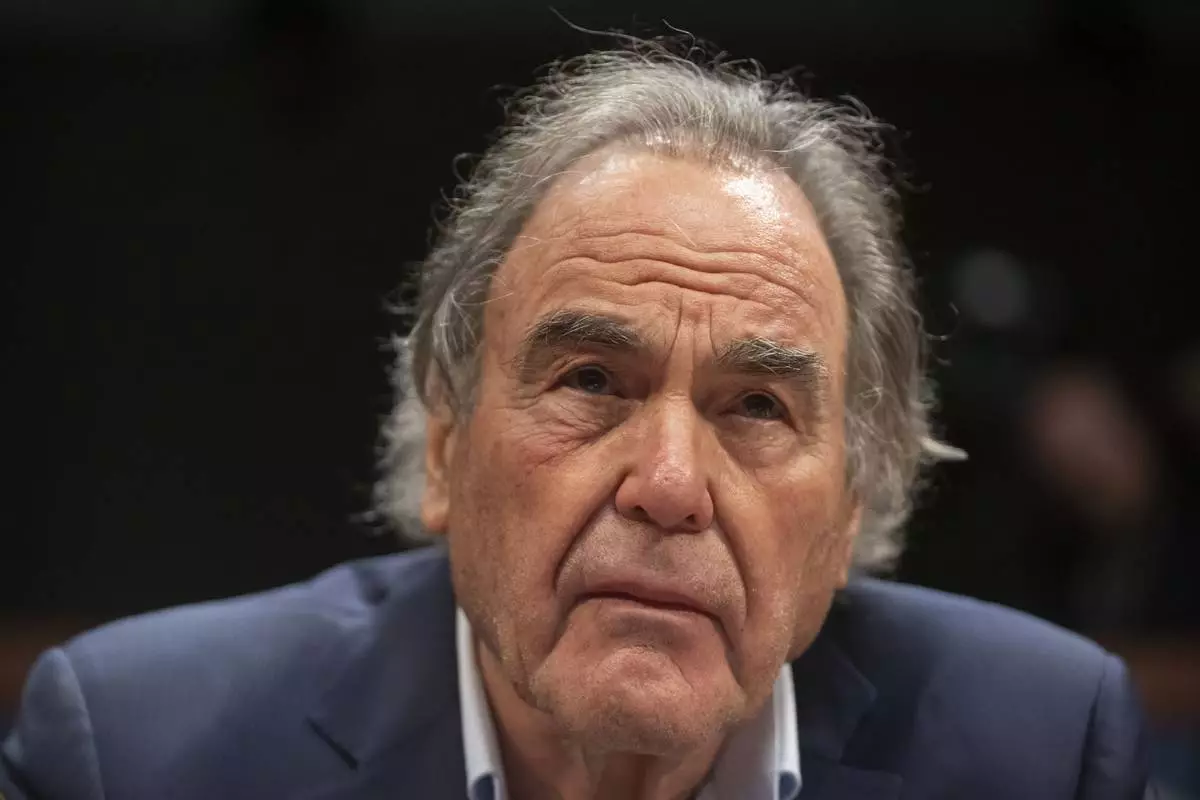
Director Oliver Stone listens during a hearing of the House Task Force on the Declassification of Federal Secrets on Capitol Hill, Tuesday, April 1, 2025, in Washington. (AP Photo/Mark Schiefelbein)
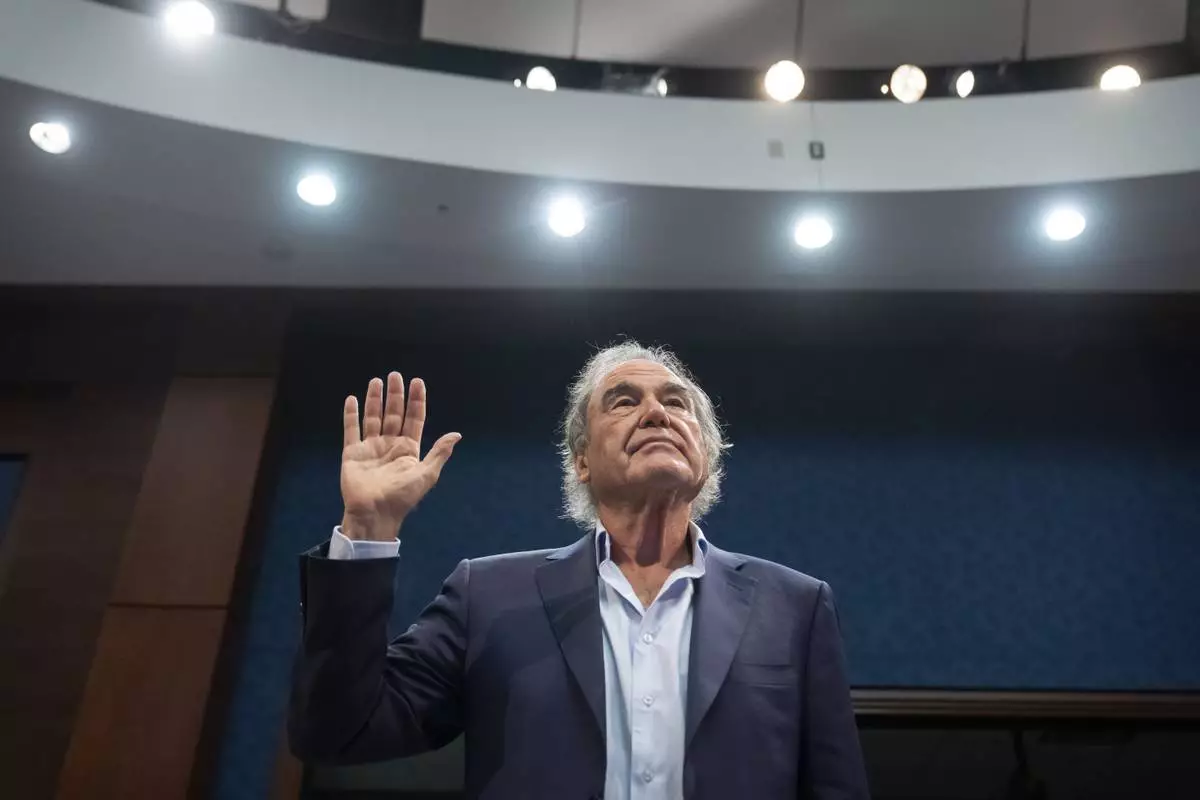
Director Oliver Stone stands to be sworn in during a hearing of the House Task Force on the Declassification of Federal Secrets on Capitol Hill, Tuesday, April 1, 2025, in Washington. (AP Photo/Mark Schiefelbein)
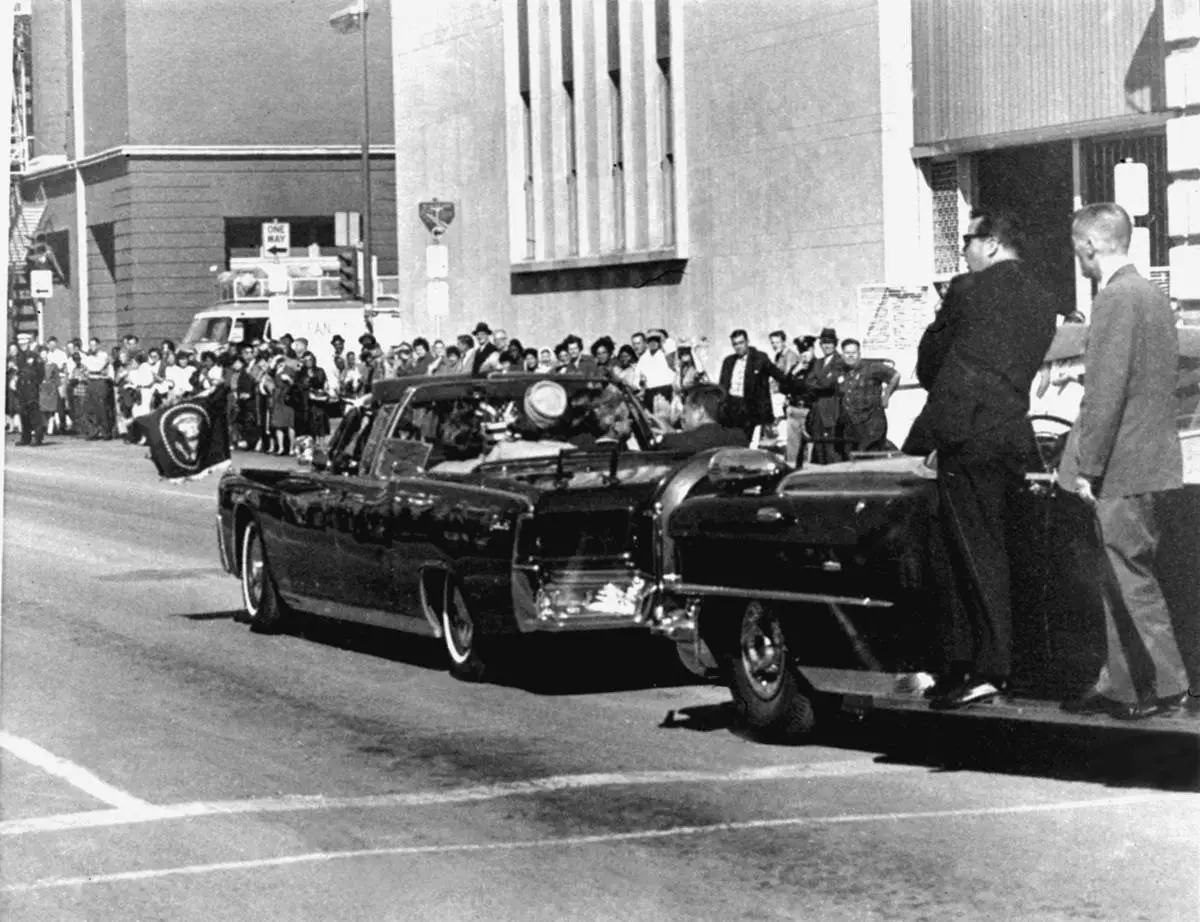
FILE - Secret servicemen standing on running boards follow the presidential limousine carrying President John F. Kennedy, right, rear seat, and first lady Jacqueline Kennedy, left, as well as Texas Gov. John Connally and his wife, Nellie, in Dallas, Texas, Nov. 22, 1963. (AP Photo/Jim Altgens, File)
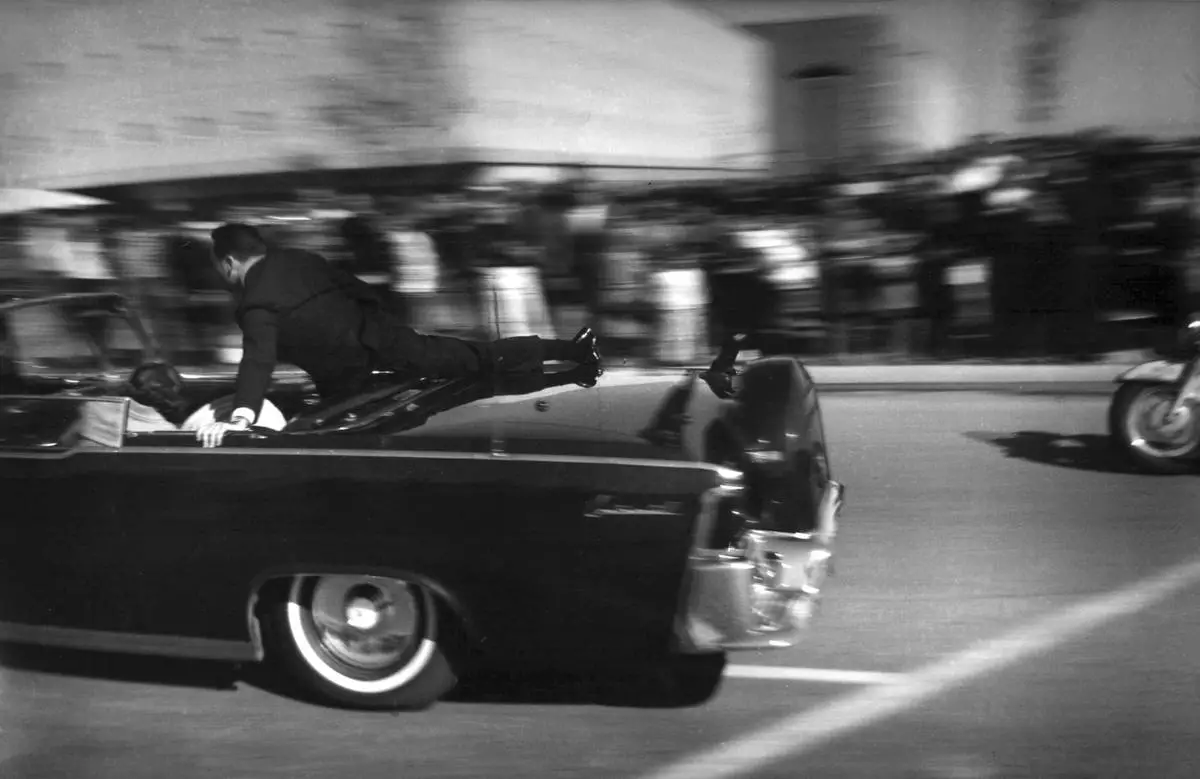
FILE - In this Nov. 22, 1963 file photo, the limousine carrying mortally wounded President John F. Kennedy races toward the hospital seconds after he was shot in Dallas. (AP Photo/Justin Newman, File)
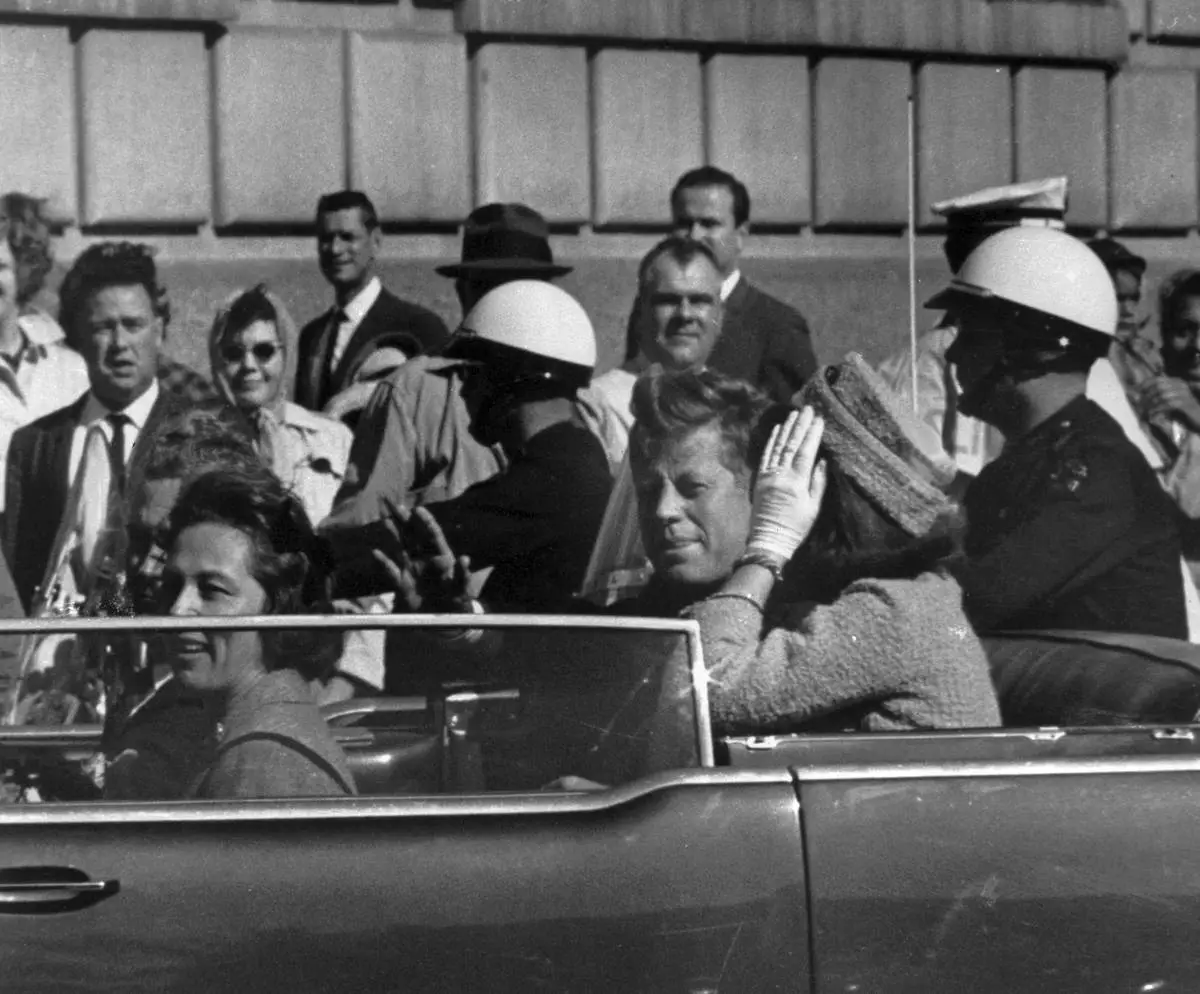
FILE - This Nov. 22, 1963 file photo shows President John F. Kennedy riding in motorcade with first lady Jacqueline Kenndy in Dallas, Texas. (AP Photo, file)
WASHINGTON (AP) — Democratic officials in 19 states filed a lawsuit against President Donald Trump's attempt to reshape elections across the U.S., calling it an unconstitutional invasion of states' clear authority to run their own elections.
Thursday's lawsuit is the fourth against the executive order issued just a week ago. It seeks to block key aspects of it, including new requirements that people provide documentary proof of citizenship when registering to vote and a demand that all mail ballots be received by Election Day.
“The President has no power to do any of this,” the state attorneys general wrote in court documents. “The Elections EO is unconstitutional, antidemocratic, and un-American.”
White House spokesperson Harrison Fields responded to the lawsuit Friday, calling the proof-of-citizenship requirements “common sense” and objections from Democrats “insane.”
“The Trump administration is standing up for free, fair, and honest elections and asking this basic question is essential to our Constitutional Republic,” he said in a statement.
Trump's order said the U.S. has failed “to enforce basic and necessary election protection." Election officials have said recent elections have been among the most secure in U.S. history. There has been no indication of any widespread fraud, including when Trump, a Republican, lost to Joe Biden, a Democrat, in 2020.
The order is the culmination of Trump’s longstanding complaints about how U.S. elections are run. After his first win in 2016, Trump falsely claimed his popular vote total would have been much higher if not for “millions of people who voted illegally.” In 2020, Trump blamed a “rigged” election for his loss and falsely claimed widespread voter fraud and manipulation of voting machines.
Trump has argued his order secures the vote against illegal voting by noncitizens, though multiple studies and investigations in the states have shown that it's rare.
The order has received praise from the top election officials in some Republican states who say it could inhibit instances of voter fraud and will give them access to federal data to better maintain their voter rolls.
The order also requires states to exclude any mail-in or absentee ballots received after Election Day, and it puts states' federal funding at risk if election officials don’t comply. Some states count ballots as long as they are postmarked by Election Day or allow voters to correct minor errors on their ballots.
Forcing states to change, the suit says, would violate the broad authority the Constitution gives states to set their own election rules. It says they decide the “times, places and manner” of how elections are run.
Congress has the power to “make or alter” election regulations, at least for federal office, but the Constitution doesn’t mention any presidential authority over election administration.
“We are a democracy — not a monarchy — and this executive order is an authoritarian power grab,” said New York Attorney General Letitia James.
Rhode Island Attorney General Peter Neronha said the Trump administration is requiring states to either comply with an unconstitutional order or lose congressionally approved funding, something he said the president has no authority to do.
“In one fell swoop, this president is attempting to undermine elections and sidestep the Congress, and we’re not going to stand for it,” he said.
California Attorney General Rob Bonta said Trump’s executive order was an attempt to impose “sweeping voting restrictions” across the country and disenfranchise voters.
The attorney general and secretary of state in Nevada, a presidential battleground, defended their state's elections as fair, secure and transparent, and they objected to the president's attempt to interfere in how they are run. Attorney General Aaron Ford praised Nevada’s automatic systems for registering voters and distributing mail ballots.
“While this order is on its face unconstitutional and illegal, it is also unnecessary,” he said.
The lawsuit was filed in U.S. District Court in Massachusetts by the Democratic attorneys general of Arizona, California, Colorado, Connecticut, Delaware, Hawaii, Illinois, Maine, Maryland, Massachusetts, Michigan, Minnesota, Nevada, New Jersey, New Mexico, New York, Rhode Island, Vermont and Wisconsin.
Other lawsuits filed over the order argue it could disenfranchise voters because millions of eligible voting-age Americans do not have the proper documents readily available. People are already required to attest to being citizens, under penalty of perjury, in order to vote.
Under the order, documents acceptable to prove citizenship would be a U.S. passport, a REAL ID-compliant driver’s license that “indicates the applicant is a citizen," and a valid photo ID as long as it is presented with proof of citizenship.
Democrats argue that millions of Americans do not have easy access to their birth certificates, about half don’t have a U.S. passport, and married women would need multiple documents if they had changed their name. That was a complication for some women during recent town elections in New Hampshire, the first ones held under a new state law requiring proof of citizenship to register.
Not all REAL ID-compliant driver's licenses designate U.S. citizenship.
Cassidy reported from Atlanta. Associated Press writers Tran Nguyen in Sacramento, California, Holly Ramer in Concord, New Hampshire, and Rio Yamat in Las Vegas contributed to this report.
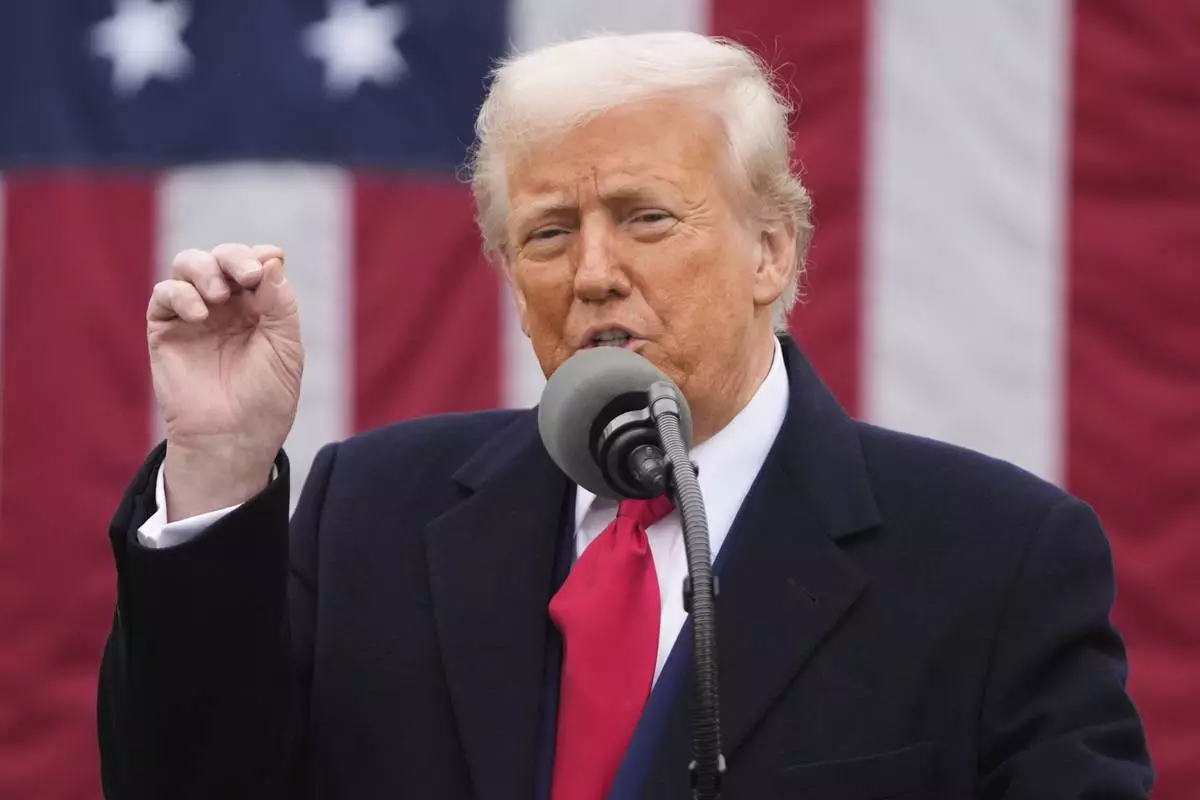
President Donald Trump speaks during an event to announce new tariffs in the Rose Garden at the White House, Wednesday, April 2, 2025, in Washington. (AP Photo/Mark Schiefelbein)
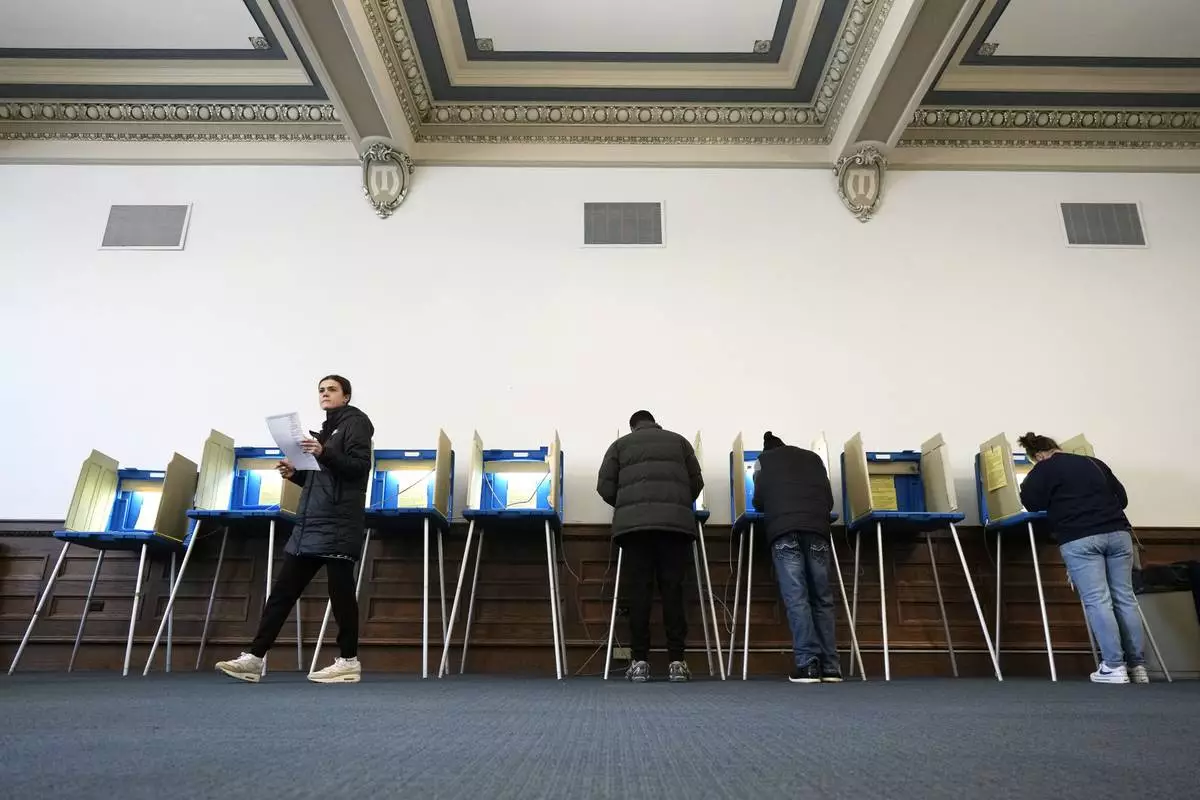
Voters mark their ballots while voting at Centennial Hall at the Milwaukee Central Library on Election Day Tuesday, April 1, 2025, in Milwaukee. (AP Photo/Kayla Wolf)
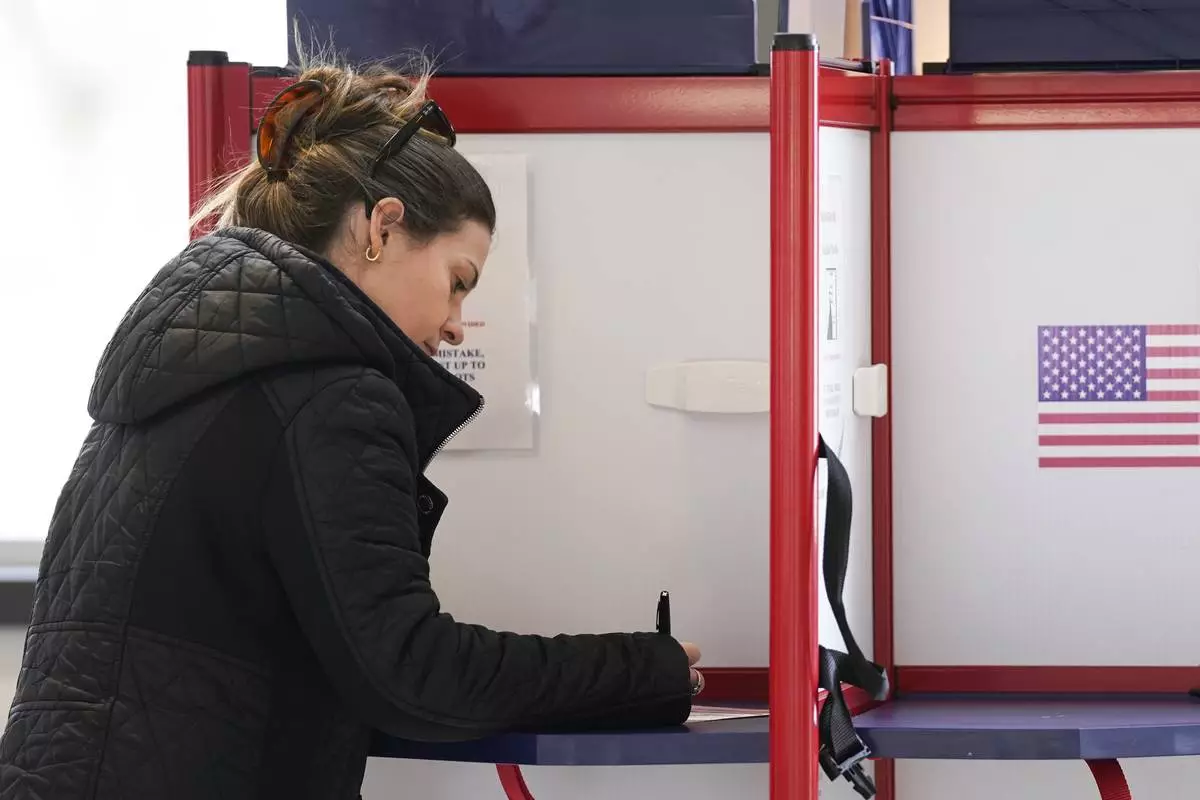
Josette Baublitz marks her ballot while voting at Waters Edge event venue in the state's Supreme Court election, Tuesday, April 1, 2025, in Milwaukee. (AP Photo/Kayla Wolf)
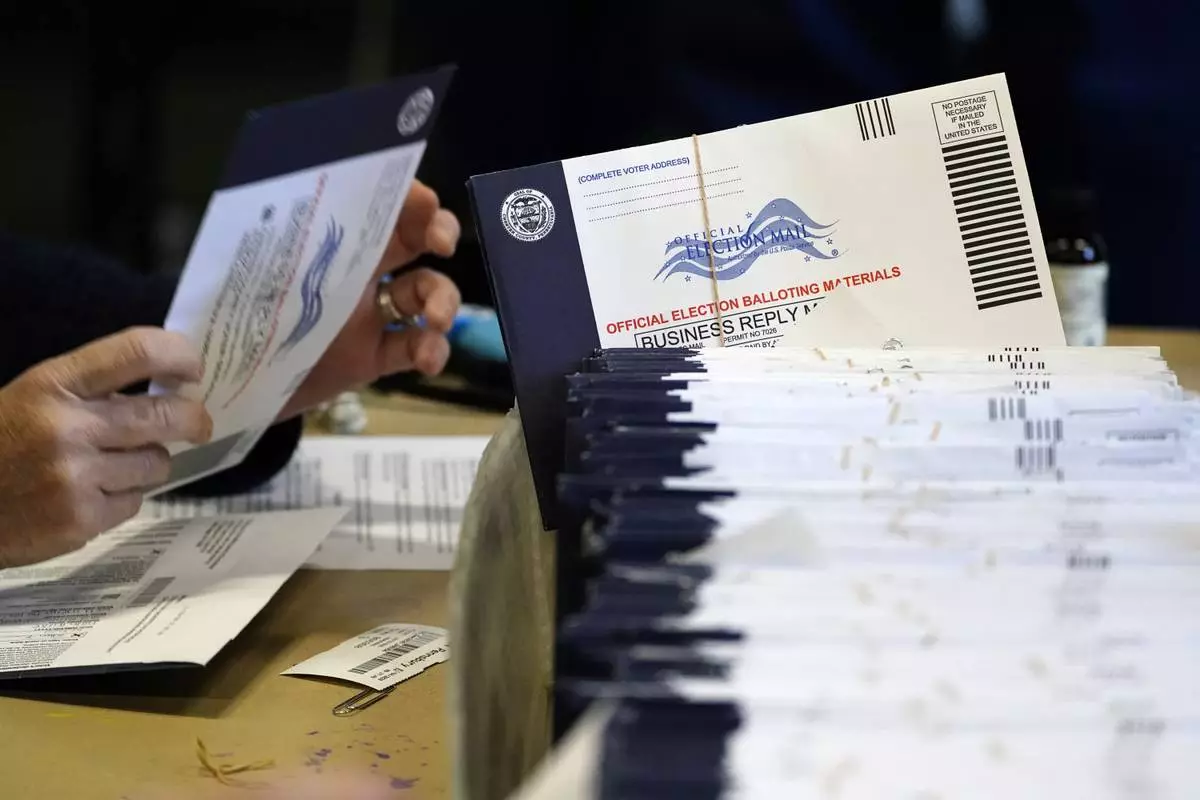
FILE - Chester County, Pa., election workers process mail-in and absentee ballots at West Chester University in West Chester, Pa., Nov. 4, 2020. (AP Photo/Matt Slocum, File)















